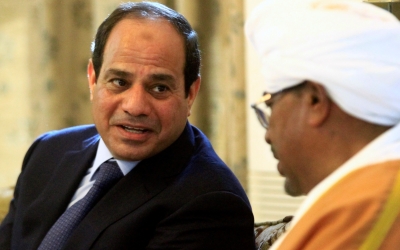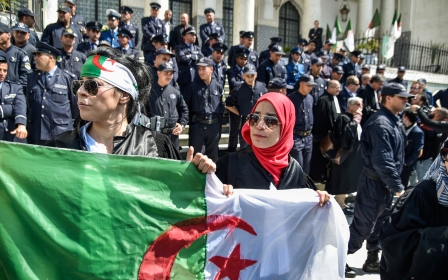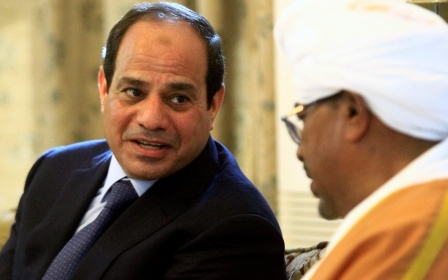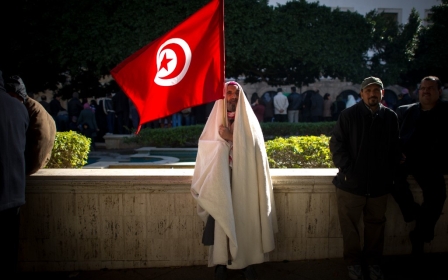Algeria's army chief says military 'looking at all options' to resolve country's turmoil
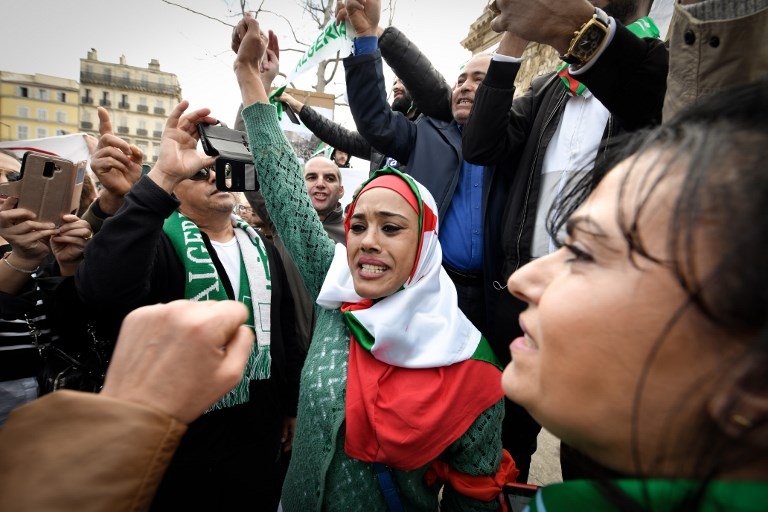
Algeria's army chief Ahmed Gaid Salah said that the military was looking at all options to end the country's political turmoil as protests continued to rock the capital city.
In a speech on Tuesday, Gaid Salah said time was running out and Algeria could not afford further delays, adding that more steps would be taken to meet protesters' demands.
New MEE newsletter: Jerusalem Dispatch
Sign up to get the latest insights and analysis on Israel-Palestine, alongside Turkey Unpacked and other MEE newsletters
Police were massively deployed around Algiers' iconic post office building, preventing the protesters from reaching what has become the emblematic point of rallies since anti-government demonstrations first erupted in February.
Algerians are demanding a complete overhaul of the political system in the North African country, including the removal of an interim government that was set up after veteran president Abdelaziz Bouteflika resigned last week.
They are demanding that government stalwarts be excluded from any political transition in the country, where presidential elections are due to take place on 4 July, according to acting president Abdelkader Bensalah.
Head of constitutional council steps down
Earlier on Tuesday, Tayeb Belaiz, the head of Algeria's constitutional council, stepped down. Belaiz told the council, which will play a key role in upcoming presidential elections, that "he presented his resignation... to the head of state".
Algerians have called for Belaiz and other top figures to quit in mass demonstrations which prompted the departure of veteran president Bouteflika earlier this month.
Protesters have targeted the "3B" - Belaiz, Prime Minister Noureddine Bedoui, and Abdelkader Bensalah who served as upper house speaker until being appointed interim president after Bouteflika's resignation.
Bensalah has defended his appointment under constitutional rules and has pledged a transparent vote to be held on 4 July.
The constitutional council is tasked with vetting election candidates, as well as ensuring the regularity of the polls.
Belaiz has served as a minister almost without interruption for 16 years and was appointed the head of the constitutional council for the second time on 10 February.
Later that month, Algerians took to the streets to rally against Bouteflika's bid for a fifth term in polls initially scheduled for April.
The demonstrations swelled and spread nationwide, with protesters calling for a broad overhaul of the political system following the president's departure.
Middle East Eye delivers independent and unrivalled coverage and analysis of the Middle East, North Africa and beyond. To learn more about republishing this content and the associated fees, please fill out this form. More about MEE can be found here.


